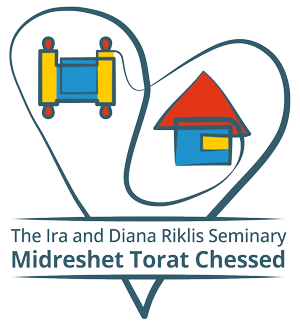
11 Nov MTC Highlights: Parshat Vayetzei

Dvar Torah by Rav Yehoshua Felberg - Educator
Parshat Vayetzei
Where is the proof in the Torah that Ya’akov Avinu wore a hat? Parshat vaytzei begins with the words “vayetzei ya’akov”. Are you telling me that Ya’akov went out without a hat on?
I was once a member of an audience being addressed by the late Rabbi Sacks (OBM) and he described to us, in his memorable style, that Jewish humour was “food for the Jewish soul”. There can be little doubt that the Jewish ability to laugh, poke fun and make merry, even in the darkest of times, has been a staff of fortitude in the long years of Jewish exile. It was not humour alone, however, that kept the Jewish spirit strong. Jews, a unique people, a mamlechet cohanim (a nation of priests), have always been defined by their relationship, not with the other nations and countries in which they sojourned, but with their creator. G-d, has always been the centre of the Jewish experience. The experience of Jacob, the ancestor from whom we derive our nation’s name “Yisrael” is exemplary of this. In the wilderness, fleeing his brother’s anguish and rage, Jacob rests his head and experiences one of the most fascinating, otherworldly and transcendent events in the Torah. He has a vision of a ladder reaching into the heavens and angels ascending and descending.
We have seen G-d speak to his creations previously in the narratives of Genesis. G-d regularly converses with Adam, Noah and members of Jacob’s own family. Prophecy is something commonplace in the early books of the bible. However, the vision of “Jacob’s ladder” is the very first time we have seen someone being shown a vision of a world in which they do not live. Indeed, according to Rashi, Abraham was lifted up out of the terrestrial sphere to look down upon creation beneath him. This was in order for G-d to solidify his promise that one day Abraham’s descendants will be as numerous as the stars of heaven and the sand of the seashore. However, Jacob’s vision is something quite different, unique, and ethereal. There is no need for commentary or midrashic exposition to divinify this vision of the heavenly realm. Without delving too deeply into the mystical implications of the verses, which are legion, what relevance or message can we take away from Jacob’s experience?
On a simple level, the image of the ladder must be taken as a signal of Jacob, and by extension, the Jewish people’s place in the universe. God sits atop, his ministering angels’ intervening and man, the lowest of all things, at the bottom. However, the image presented to Jacob is a ladder (according to some academic commentators the word סולם may in fact denote a ramp and it is unclear if today’s rung ladder is an appropriate portrayal of what the patriarch saw), something which has the potential for an upwards or downwards trajectory. Ascent or descent. A person cannot do both at the same time.
Jacob is at a turning point in his life and his journey. He is about to take a step that his father never took, leaving the land of Israel. He is doing so in order to save his own life, but he is also exposing himself to an environment of idolatry and wickedness. When we leave the spiritual cocoon, be that our home, the yeshiva or the seminary, we are all given a choice. Jacob’s ladder is a symbol of human potential. Every difficult moment, every task, every event, we can ascend closer to the divine source, or slope away, reducing our sanctity and lessening our intimacy with our creator. The gemara in Eruvin teaches us that “People are like the grass of the field, these blossom, and these wither”. Those who do not make the effort will wither. Each of us has the potential for growth, but it is up to us to nurture that potential and make the growth happen. May we all be blessed to experience growth, and to climb ever higher on our own ladders until we reach the lofty heights of our potential and our spiritual goals.
Shabbat shalom

Student Reflection
Kayla Gershkovich - HAFTR, NY - Hewlett, NY
One of the things I personally always struggled with was seeing the bigger picture. I constantly forgot the goal and when things would become difficult, I would feel defeat. It wasn’t until recently, when I came to MTC, that I have begun to understand the beauty in it.
The struggle and confusion I feel as I have started my Torah learning journey, has been addressed through the chessed, which we so amazingly do every day here at MTC.
The concept of TIME and PATIENCE.
Everything worthwhile takes time. If things are easy, then the passion is lost or even non existent.
In the beginning of the year, going to my girls everyday, I wanted so badly to be so close with them right off the bat. I didn’t understand why it was moving so slowly. When it was hard to form connections, I would be so frustrated. Now looking back and realizing how strong my relationships with some of my girls have gotten, I now appreciate the struggle in the beginning.
I look back in awe seeing how far we’ve gotten, simply just with time. My reflection of this week concludes with the understanding of patience. I have learned so much from my girls in the sense that patience is key because when the right time comes, it will be so beautiful and totally worth the wait.








































